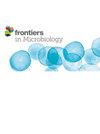Long-term saline water irrigation affected soil carbon and nitrogen cycling functional profiles in the cotton field
IF 4
2区 生物学
Q2 MICROBIOLOGY
引用次数: 0
Abstract
Saline water irrigation (SWI) plays an important role in alleviating water resource shortages. At the same time, the salt input of irrigation water affects soil microorganisms which participate in various ecological processes of terrestrial ecosystems. However, the responses of soil microbial functional potential to long-term SWI remains unclear. Therefore, Metagenomics method was utilized in cotton fields under long-term SWI to reveal the microbial functional profiles associated with soil carbon and nitrogen cycles. Results indicated that SWI impacted the microbial functional profiles of soil carbon and nitrogen cycles in the cotton fields significantly. Especially, irrigation water salinity inhibited the relative abundances of长期盐水灌溉对棉田土壤碳氮循环功能曲线的影响
盐水灌溉(SWI)在缓解水资源短缺方面发挥着重要作用。与此同时,灌溉水的盐分输入会影响参与陆地生态系统各种生态过程的土壤微生物。然而,土壤微生物功能潜力对长期 SWI 的响应仍不清楚。因此,研究人员利用元基因组学方法在长期全水分渗透的棉田中揭示了与土壤碳、氮循环相关的微生物功能谱。结果表明,全水分灌溉对棉田土壤碳、氮循环的微生物功能谱有显著影响。尤其是灌溉水盐度抑制了土壤碳降解基因 sacC 和 vanB 的相对丰度。灌溉水盐度还影响了氮降解、硝酸还原和硝化的功能基因丰度。此外,SWI 还明显增加了碳循环和氮循环中念珠菌属(Candidatus_Cloacimonetes)的丰度。在讨论中,我们通过人称分析发现,土壤盐度、pH 值和铵态氮是影响功能基因和微生物类群丰度的重要因素。总之,本研究表明,长期的SWI会显著影响特定微生物功能基因和类群的丰度,这可能会导致土壤碳氮循环的可预测结果,对探索SWI对土壤环境的影响具有重要意义。
本文章由计算机程序翻译,如有差异,请以英文原文为准。
求助全文
约1分钟内获得全文
求助全文
来源期刊

Frontiers in Microbiology
MICROBIOLOGY-
CiteScore
7.70
自引率
9.60%
发文量
4837
审稿时长
14 weeks
期刊介绍:
Frontiers in Microbiology is a leading journal in its field, publishing rigorously peer-reviewed research across the entire spectrum of microbiology. Field Chief Editor Martin G. Klotz at Washington State University is supported by an outstanding Editorial Board of international researchers. This multidisciplinary open-access journal is at the forefront of disseminating and communicating scientific knowledge and impactful discoveries to researchers, academics, clinicians and the public worldwide.
 求助内容:
求助内容: 应助结果提醒方式:
应助结果提醒方式:


